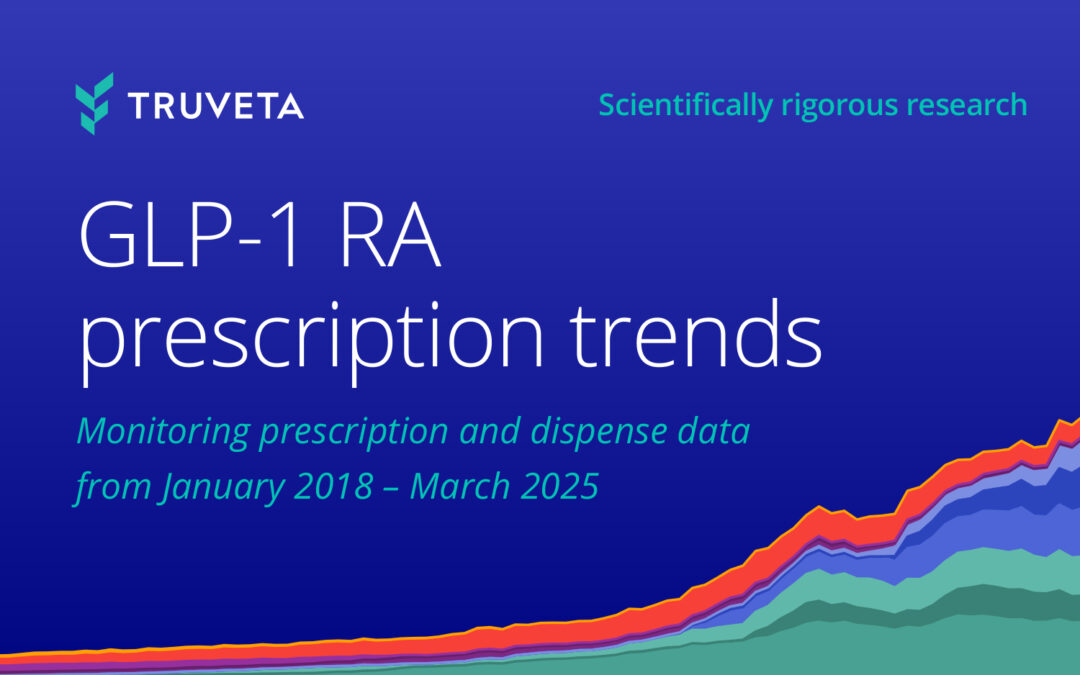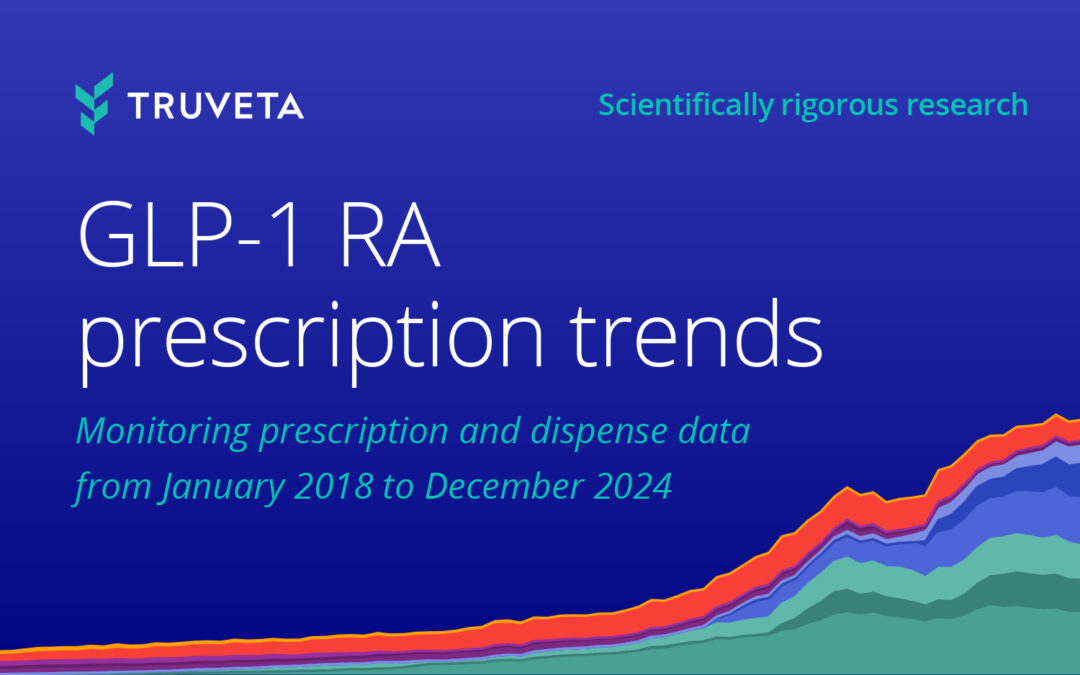GLP-1 drugs like Ozempic and Zepbound are transforming obesity treatment, yet 40-85% of patients are plagued by adverse GI events—particularly women. New research from Olio Labs, using Truveta Data, reveals that women experience nausea and vomiting at significantly higher rates than men—and uncovers biological reasons why.
Researchers at Olio Labs combined Truveta’s real-world electronic health record (EHR) data, pre-clinical rodent models, and single-cell RNA sequencing to explore sex-based differences in GLP-1 drug tolerability. The findings suggest that women’s heightened response to these drugs is linked to differences in brain receptor expression and hormone fluctuations.
Women experience greater side effects but also greater weight loss
Despite making up 70% of patients, GLP-1 prescribing trends show that women are significantly more likely than men to experience persistent nausea and vomiting while on these medications. Using real-world data from patients taking GLP-1 medications, researchers found:
- Women experience nausea and vomiting at 2.5x the rate of men.
- Despite the higher side effect burden, women achieve greater weight loss than men.
- Higher estrogen levels correlate with more severe side effects, suggesting a hormone-drug interaction.
These findings provide new insights into the tolerability trade-offs of GLP-1 therapy, particularly for women. Per Olio Labs, “The research suggests personalized dosing—adjusting medication based on menstrual cycle phases—could reduce side effects and discontinuation rates.”
Why are women more sensitive to GLP-1 drugs?
To understand the biological mechanisms driving these differences, researchers combined human EHR data, mouse behavioral phenomics, single cell RNA sequencing, and rodent behavior and found:
- GLP-1 receptor expression is higher in key brain regions associated with nausea in females.
- Female mice and rats displayed greater nausea-associated behaviors after receiving GLP-1 drugs, mirroring human data.
- Hormone fluctuations influenced tolerability, with estrogen levels affecting drug response in both humans and animals.
These findings suggest that women’s heightened sensitivity to GLP-1 drugs may be driven by fundamental biological differences in brain circuitry and hormonal regulation.
Implications for treatment and the future of personalized medicine
This study underscores the need for including female subjects in pre-clinical studies, along with the potential of developing personalized dosing strategies for GLP-1 therapies.
Download the full study on sex differences in GLP-1 signaling
Discover how Truveta Data can power your next research breakthrough








